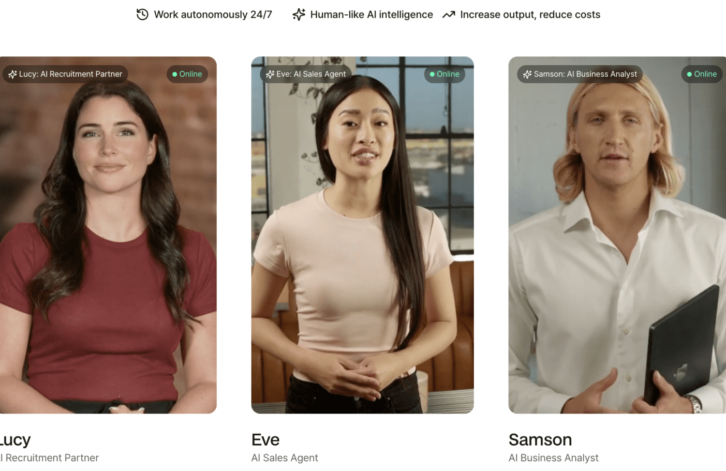Cykel AI has announced the development of two new autonomous digital workers set to become available early next year.
Known as ‘Eve’ and ‘Samson’, the AI-powered agents are made for sales and research analysis respectively, expanding the company’s digital worker portfolio.
The additions come just two weeks after the firm launched Lucy, its AI recruitment and talent acquisition partner which is able to perform recruitment tasks such as evaluating candidates and managing communications without the need for human intervention.
CEO and founder of Cykel AI Ewan Collinge said: “We’re excited to begin the development of Eve and Samson.
“Sales and research analytics are two area where autonomous AI agents can deliver unprecedented ROI and transform workplace productivity at scale.”
Some of the features Eve will be equipped with are fully automated sales pipeline management, predictive analytics for sales strategy optimisation and enterprise grade CRM integration.
Samson is also designed to have specific analytical skills such as: real-time market intelligence and competitive analysis, automated industry research and trend forecasting, comprehensive report generation and data synthesis and custom research workflow automation.
Cykel AI also claims to have several other pilot programs planned with strategic partners.
Founded in 2018, Cykel AI expects that autonomous digital workers such as Eve and Samson will make advanced AI accessible to businesses of all sizes.
After first being listed on the London Stock Exchange in July 2019, Cykel AI’s market cap sits at £18.1million, with its share price increasing over 4% to 4.35p since its announcement this morning.
The company’s digital worker’s are designed so that businesses avoid having to purchase productivity software, reducing operational costs and freeing up time for human employees to focus on decision-making.
All of its digital workers are designed to operate 24/7 with role-specific skills that allow them to integrate into existing business operations.
AI-powered digital workers have emerged as one of the biggest disruptors to the labour market in areas like sales, HR and customer services. The market is projected to be worth $800billion by 2030.
The customer service industry has three million employees in America alone with more than $120billion in wage costs but it has gained a bad reputation for its use of technology, often using deflection strategies to drive customers away and reduced the need for human wage expenses.
Funding for start-ups developing generative AI customer service tools alone reached a staggering $171million globally in the third quarter, according to PitchBook.
However, a report by the Harvard Business Review earlier this year showed that, in the customer service industry specifically, four out of the 13 customer support tasks could not be performed automatically or with augmented AI support.

